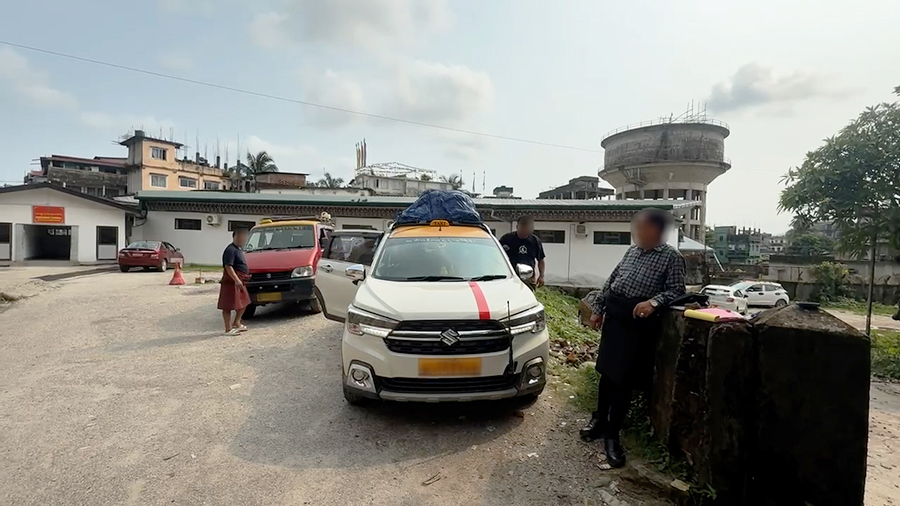 A recently introduced system to regulate the transport of foreign labourers from Phuentshogling is sparking backlash from some taxi drivers, saying it is affecting their livelihoods. Jointly implemented by the Bhutan Taxi Association and the Department of Labour, the system now requires taxi drivers to register at designated counters and wait for their turn to ferry labourers.
A recently introduced system to regulate the transport of foreign labourers from Phuentshogling is sparking backlash from some taxi drivers, saying it is affecting their livelihoods. Jointly implemented by the Bhutan Taxi Association and the Department of Labour, the system now requires taxi drivers to register at designated counters and wait for their turn to ferry labourers.
Under the new protocol, drivers must produce a token issued at Bhutan Taxi Association counters in Phuentshogling.
This can sometimes take three days or more, a shift from the previous informal arrangement where drivers could pick up passengers directly through personal contacts.
Some of the drivers who relied on the previous system said the new regulation has brought them financial distress.
Lotay Jamtsho, a taxi driver said “Before, I would go to Phuentshogling even with one or two passengers because I would receive a call that there were four people in Phuentshogling. But now, association’s new system is very inconvenient.”
Likewise, Sukraj Rai said “My passengers are mostly foreign labourers. My plan was to sell my car and buy an SUV for the comfort of my passengers. But with this system, we are affected. These days, loan defaults have also become common.”
Taxi driver Robin Darjee said “Most EV taxi owners have already fallen under Non-Performing Loans. As for me, I drive a fuel-powered car. But if this system continues, soon not just EV taxis, but even fuel taxis might face the same problem.”
The Bhutan Taxi Association says the system is meant to prevent illegal entry and drug trafficking, ensure safety of drivers and create fair opportunities for all drivers.
Tshering Penjor, Executive Director of Bhutan Taxi Association said “Many taxi drivers bring in labourers through their personal contacts, and some even travel into Indian villages to pick them up. This has led to numerous complaints, particularly from Indian drivers who say they are losing work as a result. While many drivers focus only on immediate benefits, our aim is to ensure long-term, sustainable solutions that protect everyone’s interests.”
Some taxi drivers have also expressed dissatisfaction with the Bhutan Taxi Association itself, questioning its transparency and effectiveness.
According to the Bhutan Construction and Transport Authority, there are more than 30,000 registered taxi drivers in the country currently. However, there are only around 2,800 taxi drivers registered with the association.
The association’s executive director added that the gap exists because the authority’s record includes drivers who operate on a part-time basis, not just full-time professionals.
“There are only around 4,000 taxi drivers who are full-time drivers. There are part-time and office goers and who work overtime. Considering that, 50 per cent of those full-time are members of the association.”
There are more than 6,600 registered taxi as of December last year.
In response to the current challenges, some drivers are also proposing a middle path, another registration counter. They said this system would still require proper documentation, but allow drivers to transport labourers they are already in contact. They said around 150 taxi drivers have expressed their support for this proposal.
Passang Tobgay, a taxi driver said “As far as security is concerned, the Labour Department has introduced a system for issuing a Handing Assurance Slip (HAS) slip, which includes various details that should ideally come from the association. However, there are already labour agents who can provide the slip. Now, led by four or five of us, we can obtain it, hand it over to labour agents who fill in the necessary details, and then we collect it and submit it to the Labour Department.”
BBS reached out to the Department of Labour via email and calls requesting a response on the issue, but the department has not responded.
Samten Dolkar








